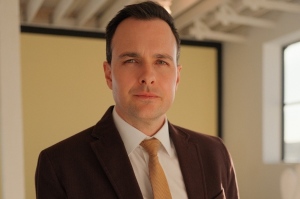How to Help a Marriage in Trouble
What do you do when you know a couple has marriage problems, but you have no formal training in how to help? Our work with thousands of marriages in crisis provides us with insight that you can use.
The most important thing is to care enough to do something. Far too often, people do nothing because they fear they might do the wrong thing. While it is possible to do the wrong thing, doing nothing is DEFINITELY the wrong thing.
If you know a couple in trouble, and you care enough to do something, consider this list of things not to do and things to do.
Do Not Do These Things
First, do not listen to one side of the story and think that you understand the situation. A person can paint a picture so reprehensible that you wonder how he stood it, and soon find yourself understanding and even approving of his desire to leave the marriage. If you deeply relate to the sharer's pain, you may not believe the other spouse's story when finally you hear it. Therefore, when listening to either spouse, ground yourself in this ageless truth, "The first person to speak always seems right until someone comes and asks the right questions." (Proverbs 18:17 ERV) The wise person listens, but suspends judgment until the entire picture comes into view. Listen to both spouses without prejudice toward either.
Second, do not believe everything either spouse says. People give their own perspectives, and, inevitably, perspectives are flawed. Additionally, people in pain tend to exaggerate. Beyond that, they tend to justify their behaviors by focusing on negatives about the other person. Therefore, listen for core issues while ignoring matters extraneous to the current problem or exaggerated to disguise the real issue. For example, a wife may try to distract you from her emotional involvement with another man by focusing you on her husband's online visit to a pornography site months ago.
Third, do not help anyone do wrong. Sometimes people think they somehow help a person with his struggles by doing immoral things in the process. It may be as simple as lying for him. Occasionally it stretches imagination. A few years ago, I worked with a couple in which the wife was having an affair. Her lover enjoyed taking her to New York for weekends, but she lacked excuses for missing those days with her family. A prominent sister in her church helped her commit adultery by taking occasional trips with her to a nearby large city for a weekend of shopping. The unfaithful Christian woman met her lover at the airport and spent the weekend in sin. Her Christian helper did all the shopping for her so that she could take her purchases home on Monday with an acceptable alibi. I never understood how the prominent sister justified her actions in her own mind.
Fourth, do not believe that a couple should divorce because their problems seem hopeless. We see marriages saved and made loving again when no one thought it possible. We witness spouses madly enamored with a lover change their minds and restore their marriages. We watch people who said they could never forgive not only forgive but also reconcile their relationships. We witness dominating, controlling spouses realize their destructive behavior and change into loving, accepting mates. Unfortunately, with all those amazing stories and more, we also hear from many couples that a counselor, church leader, or dear friend told them that their situation was hopeless and they should divorce and move on. By the grace of God, they discovered that we would help them even if everyone else thought they should part. We often hear at the end of our weekend workshop for couples in trouble, "Thank you for giving us hope. And understanding. And tools. But without hope we don't think we could have made it." Therefore, we encourage you never to advise a couple to part unless one of them – or their children – are in danger physically, emotionally, or spiritually. Otherwise, please encourage them to find the help to heal their marriage.
Fifth, do not hesitate to ask for assistance to help a marriage in crisis. Sometimes a person in a helping role feels ownership for salvaging the couple and subtly blocks others who try to help. Suggesting to a spouse or couple that they avoid advice from someone who likely will do more harm than good makes sense. I often suggest that a person not take counsel from people who have their own agendas. For example, if Mom feels anger toward the spouse who caused her daughter pain, Mom probably is not a great source for balanced, unprejudiced advice. On the other hand, suggesting that a couple listen only to you, and not to others who have as much experience and wisdom as you, may be a tragic mistake. In our work, counselors and pastors regularly send couples to us for a weekend and then we send them back for more help from them. Working together provides more opportunities to help couples turn things around than working in competition with each other.
Do These Things
First, when you know a marriage is in trouble, intervene even when not invited. Jesus inserted Himself when people needed him, even when they did not know Him. For example, He approached a funeral procession of a woman He did not know and had the audacity to tell her not to cry. (Luke 7:11-17) That brazenness is out of order in nearly every culture. However, He did it because He knew He would raise her son. He would turn death into life and bring great joy in place of her agony. From our experience with thousands of distressed marriages, I can tell you assuredly that many of them long for someone with the boldness to walk into their lives and help them save their dying marriage. We need more people who will do what Jesus did.
Second, stay with them until the healing takes place. If Jesus had told the woman to stop crying because He would bring life to her son again but did not follow through, He would have caused her more pain than she had before He interrupted her mourning. The point is that if you start something, finish it or you may cause more harm. Far too often, we hear from people that some nice Christians – church leaders or others – came by and met with one or both of them once or twice, but never came again. We understand that in most of those cases, the people who tried to help did what they knew to do, and when that did not work, they did not know anything else to do. They still cared, but did not return because they felt that they had done all they could. Even if you do not know what to do next, being there for the spouse who wants to save the marriage may be her only line of hope. Continuing to let the spouse who wants out of the marriage know that you care and that you want to help may make you the person he turns to if he has a moment of emotional lucidity.
Third, convince them to get the help they need. It is not your duty to repair their marriage. Instead, gently guide the person or couple into looking at the real problems rather than the things they wish to focus on, and then direct them to professionals with the specialized knowledge and training to help them with specific issues. Regularly I hear people say things such as, "I didn't want to come to this workshop. I didn't want to save my marriage. But ______ kept after me until finally I came just to shut him up. A lot of people had a lot of advice but he listened and seemed to have some wisdom about life. So I finally let him talk me into coming, but I wasn't happy about it. Now I gotta go home and thank him for not giving up on me." While it is true that no one wants to be harangued or nagged, it is also true that when someone we trust or love gently pushes us, we tend eventually to do what he or she urges us to do. Sometimes the person gently prodding includes incentives such as offering to pay for the crisis marriage workshop, or to take care of their children while they attend. Other times, they simply remind the person of their love and concern. Occasionally, they twist the proverbial arm. They know they run the risk of angering the spouse who does not wish to save the marriage, but they consider the possibility of helping salvage the marriage to be worth the risk. From our perspective, we thank God in heaven that there are people who love their friends enough to keep gently pushing until they agree to get help. (There is a story in the Bible about this principle as well. Luke 18:1-8)
Fourth, call to accountability by establishing consequences. When skilled interventionists meet with an addict, such as an alcoholic, they present her with consequences if she refuses to get help. Consequences may come from family members, employers, church leaders, and others who either hold influence with the addict or have something she wants or needs. The principle is to motivate the addict to do something to salvage her life by establishing clearly that if she continues her current behavior she will lose things that matter to her. The same principle works in helping marriages. For example, some churches will remove members from their fellowship who divorce without what the church considers Biblical cause. Some parents communicate their love for their grown child, but clearly indicate that if he leaves his wife for another, they will not accept the new wife into their home. Within legal limits, a few Christian employers will terminate employees who leave their spouse for another, or who refuse to seek help before divorcing. If you think any of these sound extreme, remember that the purpose is not to punish but to deter the person from divorcing without first seeking valid assistance in hopes of healing their marriages. It is not mean or cruel to try to rescue. Actually, it is much crueler in the long term not to try to rescue.
Fifth, if your friends salvage their marriage and learn to love again, lead them to help other marriages in trouble. No one is more effective in helping marriages than those who have struggled through marriage problems themselves. After you help a couple get the assistance they need to heal their own relationship, boldly ask them to use their experience in two ways. First, to tell their story whenever appropriate to married couples who are not in trouble. As they tell their story, they will lead some couples who secretly are in trouble to talk about their problems. They will help others order their lives and marriages in ways that will prevent them from having major problems later. Second, to tell their story to married couples who are in trouble, and then to stay in contact with that couple in order to become the wise friend who leads them to the help they need. It is selfish, in my opinion, to find healing and not share that healing with others in ways that helps heal them.



























